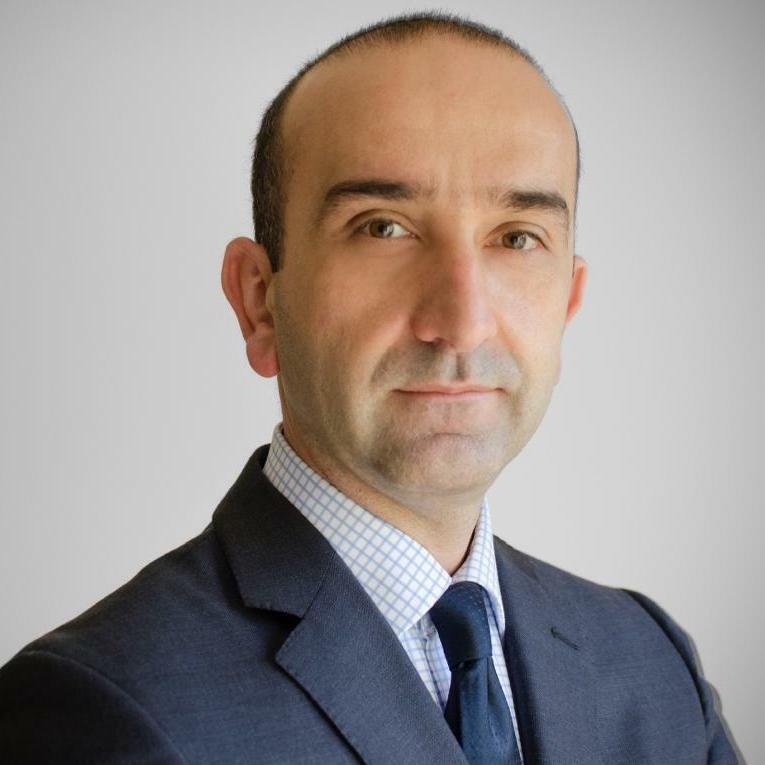Gastric Sleeve Surgery
Conveniently located to serve London, Greater London, Birmingham, and Manchester.
Patients searching for an effective approach to weight loss are recommended to consider gastric sleeve surgery in London from Mr. Georgios Vasilikostas. Gastric sleeve surgery provides superior weight loss compared to gastric band weight reduction, gastric balloons, and weight-loss medications.
This procedure can result in losing 60% or more of one’s excess weight, or 35% of their total weight. Typically, the rate of weight loss is quite rapid during the first three to six months, and patients might continue to lose weight over a two-year period. Thanks to the healthy lifestyle changes patients learn as part of this weight-loss process, they are able to keep the weight off.
What IsGastric Sleeve Surgery?
Gastric sleeve surgery, also known as a sleeve gastrectomy, aids in weight reduction by triggering changes in the gut hormones associated with hunger and satiety. As a result, patients experience fewer cravings, making portion control easier. Paired with a personalised diet and exercise plan, this can result in effective weight loss.
Weight loss can also address a number of weight-related comorbidities, like diabetes. Gastric sleeve surgery can aid in control of high cholesterol, obstructive sleep apnoea, high blood pressure, heart disease, and many other health conditions.
Ideal Candidates for Gastric Sleeve Surgery
Ideal gastric sleeve candidates have a BMI of 40 or higher. If patients have a BMI above 35 or sometimes even lower with comorbidities like Type 2 diabetes, they may also be eligible candidates.
Candidates for a gastric sleeve procedure must be ready to make lifelong changes to their diet and exercise regimen. Patients must also be willing to come in for regular follow-up appointments.
Smokers are strongly encouraged to stop smoking before the date of their gastric sleeve surgery to decrease the risk of complications and improve results.
The Gastric Sleeve Consultation
During the patient’s consultation with Mr. Vasilikostas, the patient will discuss their weight-loss goals in great detail. Mr. Vasilikostas will perform a physical examination and make enquiries regarding various lifestyle factors. The patient’s medical history will be discussed, including all pre-existing health conditions and allergies.
Mr. Vasilikostas will talk to the patient about the gastric sleeve procedure and what it can do for them. He will give them preparation instructions and tell them about the surgical process, recovery, and the weight-loss benefits of gastric sleeve surgery.
A personalised diet and exercise plan will be created for the patient. Patients can feel free to ask any questions they may have. Finally, a date will be set for the surgery.



The Gastric Sleeve Procedure
A gastric sleeve procedure takes one to two hours to perform. At the start, general anaesthesia is administered in order to ensure comfort and prevent pain.
Read More
Next, incisions are created in the abdomen. Laparoscopic incisions are quite small, resulting in a shorter recovery time.
Laparoscopic gastric sleeve surgery involves insertion of a laparoscope into an incision. A laparoscope is a thin tube with a camera and a light. The camera transmits images to an external monitor, allowing the doctor to analyse internal structures with a high degree of detail.
Next, the surgeon staples the stomach vertically. This results in a thin pouch, which is 15% to 20% of the stomach. The remaining 75% to 80% of the stomach is carefully removed. The laparoscope is withdrawn, and then the incisions are closed using medical glue.
After Gastric Sleeve Surgery
Once the patient’s gastric sleeve procedure is complete, the recovery process will begin. The patient will be monitored for one to two nights until they are cleared to return home. Pain-control medication will be administered as needed.
Read More
Patients can shower immediately after returning home. Gastric sleeve incisions will heal naturally over time. Patients are instructed to keep the incisions clean and dry. After a few days, they will be able to peel off the medical glue.
Following the operation, patients will need to follow a staged diet, which may vary from patient to patient. Our specialist bariatric dieticians provide patients with all the necessary information before and after the procedure.
Generally, patients start with a diet of sugar-free non-carbonated liquids for two weeks. After this, patients will be able to eat pureed foods for around two weeks. They will then switch to a soft diet for around two weeks. Once this period is over, patients can resume a solid-food diet.
Additionally, patients will need to take multivitamins and mineral supplements in the long term. Patients will receive more detailed information from our dieticians based on their specific case.
During the first three to six months, patients may experience minor temporary side effects, including aches, cold sensations, and feelings of fatigue. Equally, they feel more energized due to the weight loss and its positive impact on their lives. Patients will be given regular follow-ups to support them through their journey, maximize the results, and recognise any issues as early as possible.
The Cost of Gastric Sleeve Surgery
The cost of gastric sleeve surgery varies depending on the patient’s medical history. Each patient’s personal support needs can also play a role in determining the overall price. Customised price packages are available, as well as financing options.
Meet Mr Vasilikostas
With more than 25 years of clinical expertise and excellent results, Mr Vasilikostas is highly qualified in all aspects of weight loss management, including a wide range of medical and minimally invasive surgical procedures such as Allurion balloon, Orbera balloon, endoscopic sleeve, gastric bypass, mini-gastric bypass, gastric sleeve, SADI-S procedure and revision weight loss surgery.

Contact Us for a Consultation
The best way to find out more about weight loss with a gastric sleeve in London is by meeting with Mr. Vasilikostas. Patients are encouraged to contact our office to schedule their personalised consultation.
What Dietary Changes are Required After Undergoing Gastric Sleeve Surgery?
What Lifestyle Changes are Required After Undergoing Gastric Sleeve Surgery?
What Are the Criteria to Determine Patient Eligibility for Gastric Sleeve Surgery?
Eligibility is generally determined based on the following criteria:
- Body Mass Index (BMI)-Typically, candidates have a BMI of 40 or higher, or 35 and above with obesity-related health conditions like diabetes or hypertension.
- Previous weight loss efforts- Candidates usually must demonstrate that traditional weight loss methods have not been successful.
- Overall health- A thorough medical evaluation to assess risks and benefits for undergoing surgery.
- Psychological readiness: Patients often undergo a psychological evaluation to ensure they are mentally prepared for the lifestyle changes required post-surgery.
Does Gastric Sleeve Surgery Alter the Effectiveness of Medication?
What Are the Nutritional Deficiencies Patients Can Experience After Gastric Sleeve Surgery?
What Is the Recovery Timeline After Gastric Sleeve Surgery?
- Initial recovery– Most patients spend one to two nights in the hospital post-surgery. Initial recovery, focusing on pain management and gradual mobility, takes about 2-4 weeks.
- Return to normal activities– Generally, patients can return to work and normal activities within 3-5 weeks, depending on the nature of their job and recovery speed.
- Long-term recovery– Full dietary and lifestyle adjustments take place over several months, with continuous improvement in overall health and weight loss.


